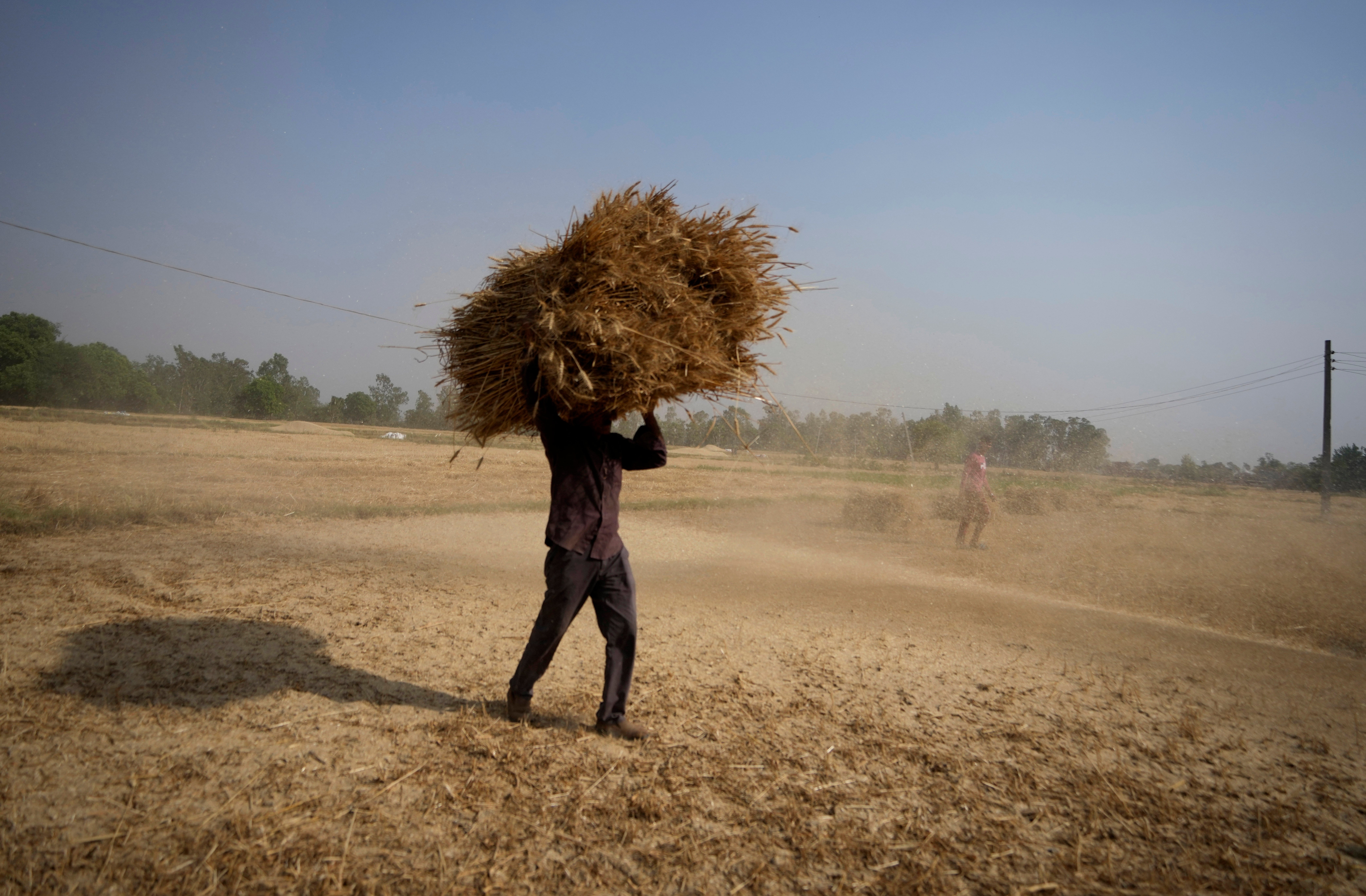India warns wheat could go way of Covid vaccines with richer countries hoarding most supplies
Open markets must not become an argument to perpetuate inequity and promote discrimination, says India

India has warned against hoarding of food grains by richer countries, making a comparison to the shortage of Covid vaccines faced by developing countries.
The remarks come after questions were raised over a decision on 13 May by India, the world’s second-largest producer of wheat, to restrict exports of the grain as global prices spiral.
The country’s decision comes amid a blistering heatwave that has impacted its crop production. It has defended its decision saying the aim was to ensure food security.
“The decision [of 13 May] is aimed at controlling the retail prices of wheat and wheat flour — which have risen by an average 14-20 per cent in the last one year — and meet the foodgrain requirement of neighbouring and vulnerable countries,” V Muraleedharan, a junior minister in India’s foreign minister, said at the UN food security meeting on Wednesday.
India also lashed out at richer countries adding that the “open market” system that the western nations are advocating should not create an imbalance and negatively impact the developing countries the way it happened after the spread of the Covid pandemic.
“A number of low-income societies are today confronted with the twin challenges of rising costs and difficulty in access to food grains. Even those like India, who have adequate stocks, have seen an unjustified increase in food prices,” Mr Muraleedharan said.
“It is clear that hoarding and speculation is at work. We cannot allow this to pass unchallenged,” Mr Muraleedharan added.
A notification from India’s Directorate General of Foreign Trade said wheat exports would only be allowed on the basis of permission granted by the federal government.
This is the first time India has spoken about its decision taken on last Friday as it received some heat from the US for doing so amid rising prices of grain, surging this year due in part to the Russia-Ukraine war.
Mr Muraleedharan said the call was taken “in order to manage our own overall food security and support the needs of neighbouring and other vulnerable developing countries.”
While emphasising that India, which is currently sending humanitarian support to Myanmar and Sri Lanka, will play its due role in advancing global food security “and it will do so in a manner in which it upholds equity”, it said that it was necessary to “adequately appreciate the importance of equity, affordability and accessibility when it comes to food grains.”
“We have already seen to our great cost how these principles were disregarded in the case of Covid vaccines. Open markets must not become an argument to perpetuate inequity and promote discrimination,” Mr Muraleedharan said.
Ahead of the key UN meeting on food security, Linda Thomas-Greenfield, the US’s envoy to the UN, said it had called out India for its decision, urging countries to not adopt restrictions on exports that “will exacerbate the food shortages”.
“We have seen the report of India’s decision. We’re encouraging countries not to restrict exports because we think any restrictions on exports will exacerbate the food shortages. But again, India will be one of the countries participating in our meeting at the Security Council, and we hope that they can, as they hear the concerns being raised by other countries, that they would reconsider that position,” Ms Thomas-Greenfield said.
Prices of wheat and other commodities have been globally hit in recent months as Russia and Ukraine are among the top five global exporters for many important cereals and oilseeds such as barley, sunflowers, sunflower oil and maize, according to the International Food Policy Research Institute.
India has also been reeling under the impact of rising prices domestically. India produces over 13 per cent of the world’s wheat. In April, India’s wheat prices hit their highest level since 2010.
However, India is not alone in restricting its exports. In addition to India, Egypt, Kazakhstan, Kosovo and Serbia have also banned wheat exports.
Join our commenting forum
Join thought-provoking conversations, follow other Independent readers and see their replies
Comments
Bookmark popover
Removed from bookmarks